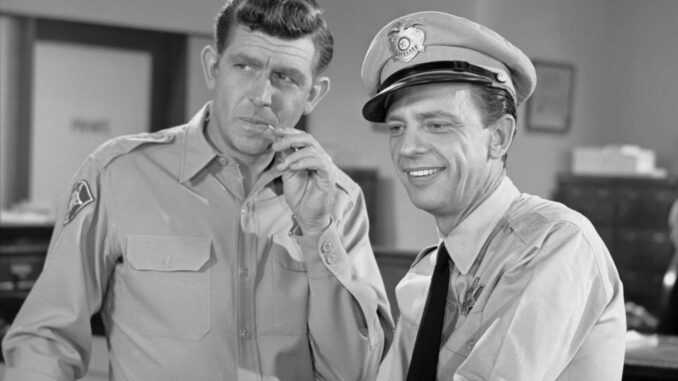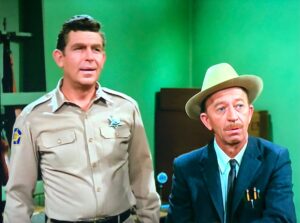
There is certainly nothing new about an actor or actress becoming so identified with a character they play on TV that the audience confuses one for the other. For years, whenever Elizabeth Montgomery showed up on TV somewhere, the first response was often, “It’s Bewitched!” Do you really think Leonard Nimoy could go anywhere without people commenting on the fact that they were with Star Trek’s Mr. Spock? And then there’s actress Frances Bavier who had been acting on stage, film and TV for 40 years before playing Aunt Bee on The Andy Griffith Show, yet that was the way people thought of her for the rest of her life. And it was so serious that she even saw a psychiatrist about it.
“You can’t be an actress for 40 years, living in a world of make-believe, and not be affected,” she related to the Star-Gazette of Elmira, New York, in 1966. “Sooner or later, your mind begins to click and in my case you are wise to seek professional help to help stop being Aunt Bee after work. It’s terribly difficult, because Aunt Bee is so much nicer than the real me. Unlike plays in which you play a character only a couple of hours each night, you must be a television character 12 hours a day. And even when you go home, people don’t recognize you as you, but for the character you play. It can be awfully confusing.”
She added to The Charlotte News of Charlotte, North Carolina, “Once in a while I got a hankering to play a really bad woman. Once a few years ago I was really vicious in a Lone Ranger episode, but so many people wrote in outrage at what I was doing, I guess it was a mistake. Sometimes it gets me down to think I’ve lost my own identity and my identity as an actress. But other times I get a lift when I realize that I’m really doing quite well.”

She was born Frances Elizabeth Bavier on December 14, 1902, in New York City. Her original intention was to become a teacher, which is what she went to Columbia University for, though it didn’t work out. “I was bad there,” she admitted to The Charlotte News. “Very bad. Actually, I was disenchanted. That’s probably the reason I enrolled at the American Academy of Dramatic Arts.”
“I must be a rare species,” she reflected with The Brooklyn Daily Eagle in 1943. “Every time I’ve been an understudy, I’ve gone on. In my first job in the theater, a vaudeville skit with William Cameron, the ingénue suddenly revealed that she was about to have a baby. The doctor ordered her to quit work and it was I, the understudy, who gave thanks for that ‘act of God.’ As understudy in Higher and Higher, I replaced Hilda Spong in Boston before the New York opening and when I followed Dorothy Stickney in On Borrowed Time, I not only completed the Broadway run, but I also played the part in Chicago.”
And while she rose to the occasion each time, she did explain that there is a physical toll. “When you are told by the stage manager that you must go on,” detailed Frances, “it is actually a physical shock requiring every bit of reserve energy. Usually, you get the word just before the curtain and your wits have to work, not double, but triple time. The ordeal is terrific since you must make good in one performance and it’s got to be your best. However, it is very fine training.”
